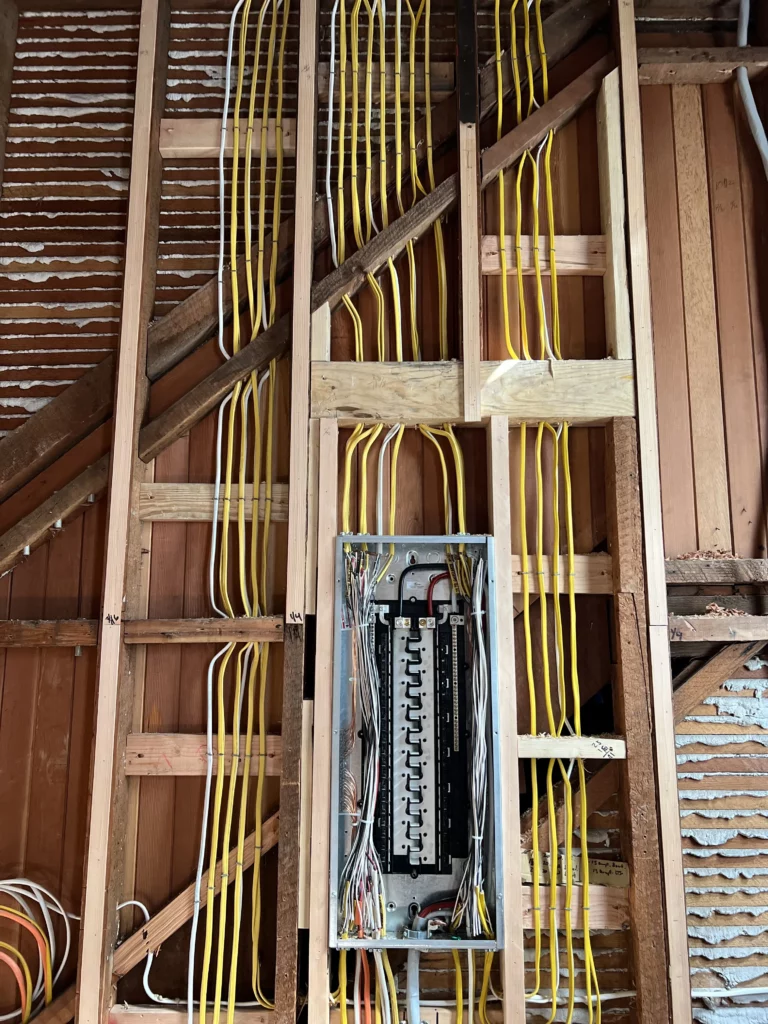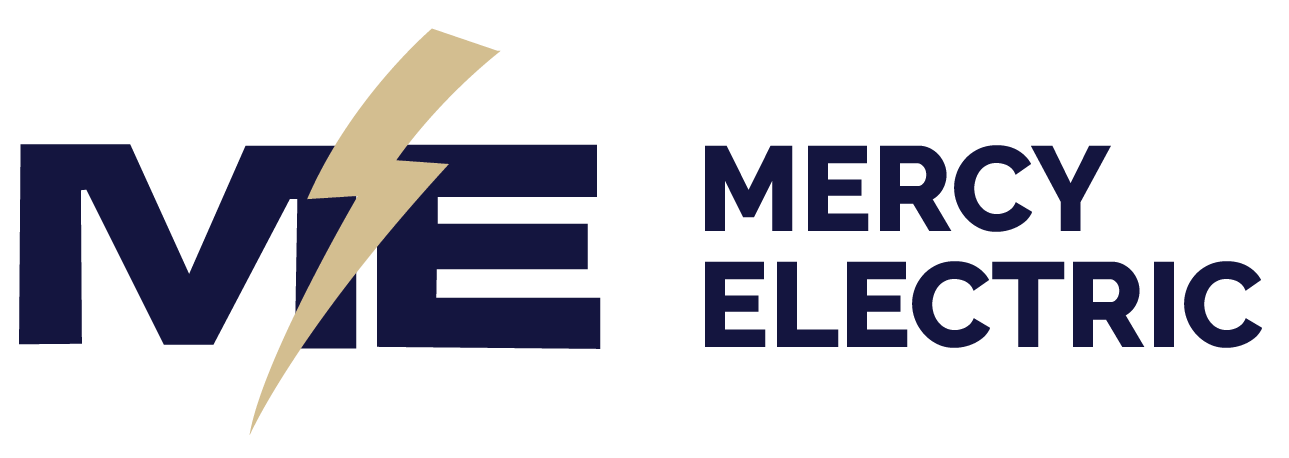Electrical Panel Upgrade – DIY Vs Professional Panel Upgrade
Upgrading your home’s electrical panel (Our Service Page) is an important project that requires careful consideration. Your panel is the central hub that distributes power from the utility lines throughout your house – if it’s outdated, unsafe, or insufficient, you could be putting your home and family at risk. In this comprehensive guide, we’ll walk you through everything you need to know about electrical panel upgrade, when and why an upgrade is necessary, whether DIY or professional installation is best, costs and more to help you make the right choice for your needs.

Why Might You Need to Replace An Electrical Panel - Recognizing the Signs
There are several reasons you may need to upgrade the electrical panel in your home:
- Old age – If your home’s electrical panel is more than 40-50 years old, it’s likely time for an upgrade. Old panels can present fire and shock hazards as they continue to age. Newer panels have advanced safety features and more reliable breakers.
- Insufficient amperage – Today’s homes use far more electricity than those built decades ago. If your 100 or 150-amp panel constantly trips breakers when multiple appliances are running, an upgrade to 200 amps or more may be needed.
- No spare breaker slots – If your breaker box is full with no space for adding new circuits, it’s time to upgrade to a larger panel. This gives you room to expand electricity to new additions or appliances.
- Faulty breakers – Breakers can weaken and malfunction over time. If you have breakers that frequently trip for no reason or fail to trip when overloaded, an upgrade is likely in order. New breakers are more reliable and safer.
- Aluminum wiring – If your home has outdated aluminum wiring, upgrades to copper wiring should be made to reduce fire risks. Upgrading the electrical panel provides an opportunity to rewire your home with copper.
- New additions – Adding a major new electric appliance like a hot tub, EV charger or central air may require upgrading your panel to support the increased electrical load. Check out our remodel wiring service page here.
If you notice any of these issues, it’s a sign your electrical panel may need to be replaced for safety and to meet your household’s current electricity needs. (Resource: US Office of Compliance)
DIY Electrical Panel Upgrade vs Hiring an Electrician: Key Considerations
Once you’ve determined your electrical panel does indeed need to be upgraded, one of the biggest decisions is whether to take on the project as a DIY job or to hire a professional electrician. There are pros and cons to each approach:
Contact Us Today About Your Project
Contact NowDIY Electrical Panel Replacement
Pros:
- More affordable – You’ll save on labor costs by doing it yourself
- Satisfaction of completing a significant home project on your own
Cons:
- Extremely complex – Electrical work is highly technical and dangerous for amateurs
- Permitting – Most areas require permits and inspections for panel replacements, which you must coordinate
- No professional guidance – You won’t have an expert to consult if you run into issues
- Liability – Risk of shocks, fires, or other hazards if wiring is incorrect
Hiring an Electrician
Pros:
- Expertise – Electricians have the experience to safely and properly upgrade any panel
- Code compliance – Electricians ensure all work meets the latest electrical codes
- Warranty – Professional work often comes with guarantees and warranties
- Safety – Allow the experts to handle dangerous electrical work to avoid risks
Cons:
- Cost – Professional electricians charge more than DIY
As you can see, DIY comes with major risks and challenges. Unless you’re a highly skilled electrician yourself, most homeowners are better off hiring a pro for panel upgrades. The cost is well worth it for the expertise, safety and peace of mind.
How Much Does it Cost to Replace an Electrical Panel?
The total costs to upgrade your home’s electrical panel can range from $800 on the low end up to $5,000 or more if significant rewiring and repairs are needed.
Text Us Now For A Quote
Get Your QuoteTypical professional electrician costs include:
- Panel cost – $500-2000 for a 200 amp panel
- Breakers – $5-40 per breaker (typically 20-40 needed)
- Labor – $800-3000+ depending on project scope
- Permits & inspection fees – $100-500+ depending on your area
Additional costs may include:
- Rewiring – $2000-8000 if full home rewire is needed with copper
- Repairs – $500-6000+ if walls/drywall need patching, access needs enlarging, etc
- Whole home surge protector – $500-1500 recommended for large appliances
- Generator hookup – $4000+ to integrate emergency backup power (See our Generator Service Page)
Always get multiple quotes to compare pricing between professional electricians in your area. Be wary of quotes that seem disproportionally low or high.

7 Key Steps Involved in a Professional Panel Upgrade
When you choose to hire a professional electrician to upgrade your home’s electrical panel, what exactly will the process involve? Here are the typical end-to-end steps:
- Initial consultation – The electrician will evaluate your current panel and electrical usage needs to recommend the ideal panel upgrade option.
- Permits – The electrician will handle obtaining all necessary permits for the electrical work.
- Panel purchase – Based on your needs, the electrician will purchase a new panel and all required breakers.
- Wiring – If any wiring upgrades are needed, the electrician will install new copper wiring throughout the home’s circuits.
- Panel installation – The old panel will be removed and the new larger panel permanently installed and connected.
- Breakers & labeling – The electrician will install all new breakers and clearly label each circuit in the new panel.
- Inspections & cleanup – Once complete, the electrician will call for final inspections. All wiring and drywall repairs will be neatly finished.
Hiring a pro who is familiar with these stages of the panel upgrade process will make the project go as smoothly as possible.
5 Essential Questions to Ask Before Hiring an Electrician
Upgrading your electrical service is not a project to leave to just any handyman. Always vet any potential contractors thoroughly before hiring. Here are 5 key questions electricians should be able to answer clearly:
- Are you licensed, bonded and insured? – This is absolutely mandatory for any electrical work. Ask for their license number.
- What permits and inspections will be needed? – Panel upgrades usually require several permits and inspections. A reputable electrician will handle all of this seamlessly.
- Can you provide references from recent panel upgrade projects? – Ask for 2-3 references and call previous customers to confirm quality work.
- Will you provide a detailed invoice upon project completion? – Itemized invoices document what was done and are crucial for warranty repairs if needed.
- Do you offer any warranties or guarantees on your work? – Many electricians stand behind their work with 1+ year repair warranties.
Should I Upgrade to 100, 150, 200 or More Amps?
Most modern homes should have 200 amp electrical panels, but very large houses with upgraded wiring may benefit from 400 amps. Here are typical recommendations:
- 1000-1500 sq ft home – 100 amps or 150 amps is often sufficient
- 1500-2500 sq ft home – A 200 amp panel is ideal for most needs
- 2500+ sq ft homes – May require 200 amps or upgraded to 400 amps
Consider how many major appliances and high wattage devices you need to run concurrently to determine appropriate amps. 100 amps panels can present limitations, so upgrading to 150-200 amps gives you more power flexibility.
Contact Us Today About Your Project
Contact NowIs a Panel Upgrade Tax Deductible? Getting Discounts
Because an electrical panel upgrade improves safety and energy efficiency, it qualifies as a home improvement. As such, the costs may be tax deductible or eligible for rebates.
- Federal tax credit – Up to $500 deduction for approved energy efficiency upgrades
- State/local tax credits – Some areas offer credits for approved electrical work
- Utility company rebates – Check for panel upgrade rebates from your electrical company
- Manufacturer rebates – Makers of panels/breakers sometimes offer instant rebates
- Energy efficiency loans – Low interest loans for electrical upgrades are available in some areas
Consult a tax expert to utilize all possible deductions and credits to reduce the costs of your essential panel upgrade as much as possible. The investment will pay dividends in safety for years to come.
Key Takeaways on Upgrading Your Electrical Panel
Upgrading your home’s electrical panel is an important improvement that should not be put off if your current panel shows any signs of inadequacy, safety hazards or age. While a DIY panel replacement is not advisable for most homeowners, hiring a professional electrician ensures the job is done properly while avoiding the dangers of working with electrical wiring. With the right contractor, and tax credits and rebates to reduce costs, investing in a new state-of-the-art electrical panel is one of the wisest upgrades you can make for your home and family.
In conclusion, if you are experiencing electrical issues (Check out our other blog post on panels here) in your home and frequently need an electrical panel upgrade, it is likely time to replace your old electrical panel with a new one. The cost to upgrade an electrical panel can vary depending on the size and type of panel you choose. For example, a 100-amp panel may cost less than a 200-amp panel. It is essential to consult a local electrical professional to determine the best option for your home’s electrical system. An outdated panel may not be able to handle the power demands of modern electrical appliances and can potentially cause electrical fires. Investing in a new panel and possibly new wiring can cost anywhere from a few hundred to a few thousand dollars, but the safety and peace of mind it brings make it worthwhile. Don’t wait until it’s too late; take the time to upgrade your electrical panel and ensure the safety and efficiency of your home’s electrical system.

FAQs
What is a circuit breaker?
A circuit breaker is an electrical switch that automatically stops the flow of electric current in a circuit if there is an overload, short circuit, or other electrical fault. It is designed to protect the electrical system and prevent electrical fires.
Why would I need to upgrade my electrical panel?
There are several reasons why you may need to upgrade your electrical panel. Some common reasons include:
- Your electrical panel is old and outdated, and may not be able to handle the electrical demands of modern appliances and devices.
- You are adding new electrical circuits to your home and need more capacity in your electrical panel.
- Your existing panel is not up to code and needs to be replaced for safety reasons.
How much does it cost to replace an electrical panel?
The cost to replace an electrical panel can vary depending on several factors, such as the size of your panel, the complexity of the installation, and your location. On average, the cost to replace an electrical panel can range from $500 to $1500.
What is the average cost to replace an electrical panel?
The average cost to replace an electrical panel is around $1000. However, this cost can vary depending on the factors mentioned earlier.
Can I replace an electrical panel myself?
It is not recommended to replace an electrical panel yourself unless you have experience and knowledge in electrical work. Electrical panel replacement requires specialized skills and should be done by a licensed electrician to ensure safety and compliance with electrical codes.
Text Us Now For A Quote
Get Your QuoteWhat are the signs that my panel needs an upgrade?
There are several signs that your panel may need an upgrade:
- Frequent tripping of circuit breakers
- Flickering or dimming lights
- Burning smell coming from your electrical panel
- Hot or discolored breakers
- Crackling sounds coming from the panel
Is it worth it to upgrade my electrical panel?
If your electrical panel is old, outdated, or no longer meets the electrical needs of your home, it is definitely worth considering an upgrade. Upgrading your electrical panel can improve the safety and efficiency of your electrical system and prevent electrical fires.
Do I need to upgrade my electrical panel if I have an older home?
Older homes often have outdated electrical panels that may not meet the electrical demands of modern living. If you have an older home, it is recommended to have your electrical panel inspected by a licensed electrician to ensure it is up to code and can handle the electricity requirements of your home.

